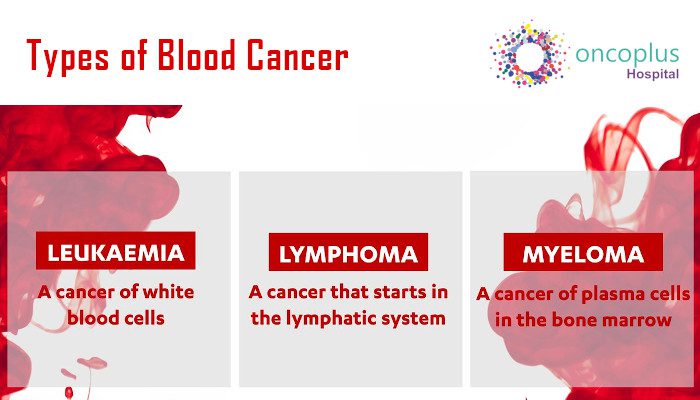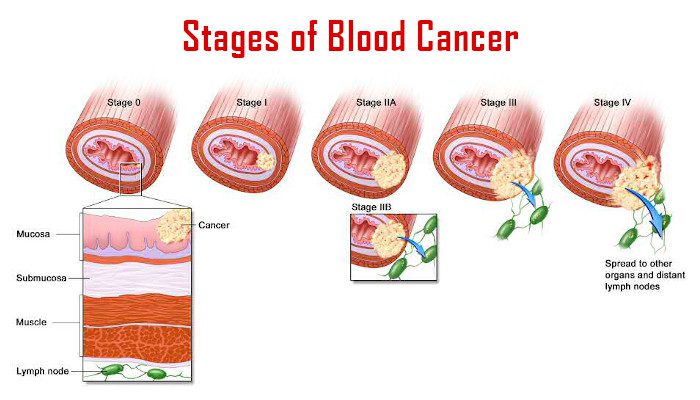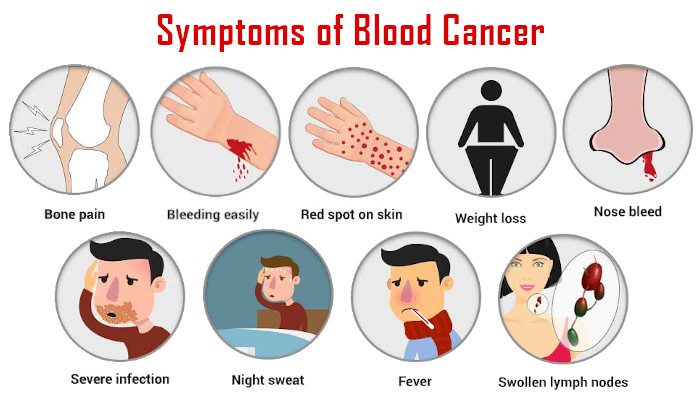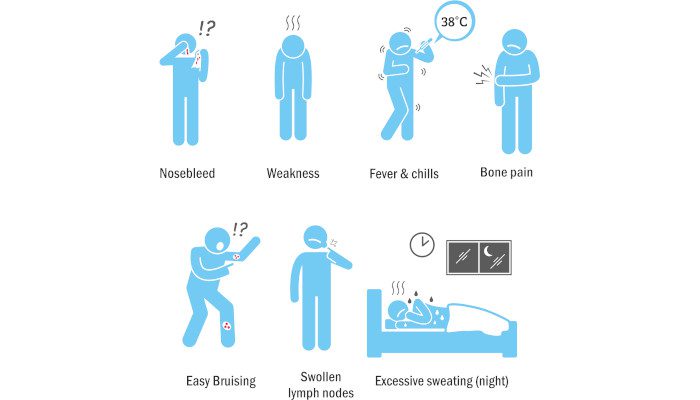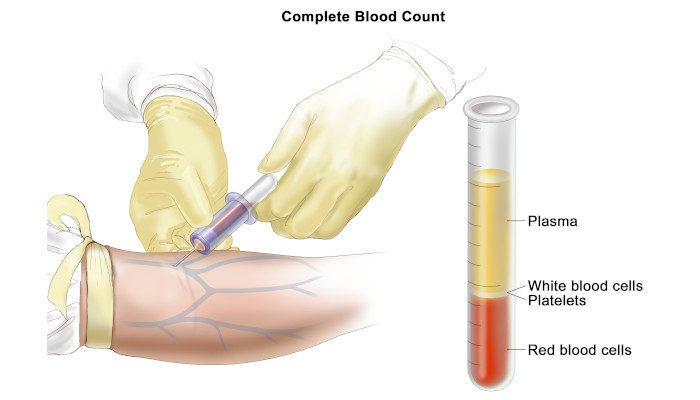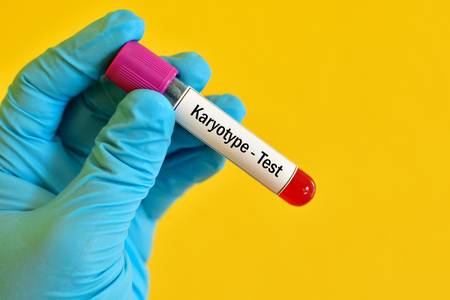Blood cancer, one of the most challenging diseases to diagnose and treat, requires specialized medical care. If you’re looking for the best blood cancer treatment in Delhi, this guide provides in-depth insights into the top hospitals, treatment options, and expert oncologists available in the capital.
What is Blood Cancer?
Blood cancer affects the production and function of blood cells. It originates in the bone marrow, where blood is produced. The most common types of blood cancer include:
- Leukemia: Affects the blood and bone marrow.
- Lymphoma: Impacts the lymphatic system.
- Myeloma: Targets the plasma cells.
Early Diagnosis and Symptoms of Blood Cancer
Early diagnosis is crucial in increasing the chances of successful treatment. Some common symptoms of blood cancer include:
- Persistent fatigue
- Unexplained weight loss
- Frequent infections
- Easy bruising or bleeding
- Bone and joint pain
If you experience any of these symptoms, it’s important to consult a specialist immediately for a thorough evaluation.
Why Choose Delhi for Blood Cancer Treatment?
Delhi is known for its advanced medical infrastructure and renowned specialists in the field of oncology. Choosing Delhi for blood cancer treatment offers several advantages:
- State-of-the-art Facilities: Delhi houses some of the best hospitals equipped with cutting-edge technology for diagnosing and treating blood cancer.
- Expert Oncologists: The city is home to highly qualified and experienced oncologists specializing in blood cancer treatment.
- Comprehensive Care: Multi-disciplinary teams provide holistic care, including medical, surgical, and supportive therapies.
Best Hospitals for Blood Cancer Treatment in Delhi
If you’re seeking the best blood cancer treatment in Delhi, these hospitals are at the forefront of delivering world-class care:
- AIIMS (All India Institute of Medical Sciences)
- Renowned for its comprehensive cancer care and research.
- Offers advanced diagnostic and therapeutic techniques.
- Oncoplus Hospital
- Advanced Blood Cancer Treatment: Oncoplus Hospital offers state-of-the-art therapies, including chemotherapy, immunotherapy, and targeted treatments, for effective cancer care.
- Expert Oncologists: A team of skilled specialists provides personalized care, ensuring comprehensive treatment plans tailored to each patient’s needs.
- Max Super Specialty Hospital
- Known for personalized treatment plans and advanced therapies.
- Equipped with state-of-the-art technology for precise treatment.
- Fortis Memorial Research Institute
- Offers a broad spectrum of blood cancer treatments.
- Renowned for its team of experienced oncologists and hematologists.
- Apollo Cancer Institute
- A leader in innovative cancer treatments.
- Provides multi-modal therapies, including chemotherapy and immunotherapy.
Advanced Blood Cancer Treatment Options in Delhi
Delhi’s medical institutions offer a wide range of blood cancer treatment options to cater to the specific needs of each patient:
- Chemotherapy
- The most common form of treatment, used to kill cancer cells.
- Involves a series of drug infusions designed to target rapidly growing cells.
- Radiation Therapy
- Uses high-energy rays to destroy cancer cells.
- Often combined with chemotherapy for enhanced effectiveness.
- Targeted Therapy
- Focuses on specific molecules and genetic factors of cancer cells.
- Reduces damage to normal cells, making it a less toxic option.
- Immunotherapy
- Boosts the body’s immune system to fight cancer cells.
- Includes treatments like CAR-T cell therapy and monoclonal antibodies.
- Bone Marrow Transplant
- Also known as stem cell transplant.
- Replaces the damaged bone marrow with healthy stem cells to restore blood production.
How to Choose the Best Blood Cancer Doctor in Delhi
Choosing the right doctor is a critical step in your treatment journey. Here are a few tips to help you find the best blood cancer doctor in Delhi:
- Experience: Look for doctors with extensive experience in treating blood cancer.
- Specialization: Ensure that the doctor specializes in hematology or oncology.
- Patient Reviews: Check online reviews and patient testimonials to gauge their success rate.
- Hospital Affiliation: Consider doctors affiliated with leading cancer hospitals in Delhi.
Cost of Blood Cancer Treatment in Delhi
The cost of blood cancer treatment in Delhi can vary widely based on the type of cancer, stage, treatment method, and the hospital. Here is a rough estimate of the expenses:
- Chemotherapy: ₹50,000 to ₹2,00,000 per cycle.
- Radiation Therapy: ₹1,50,000 to ₹3,00,000 for a complete course.
- Bone Marrow Transplant: ₹10,00,000 to ₹20,00,000.
- Targeted and Immunotherapy: ₹2,00,000 to ₹5,00,000 per session.
It’s advisable to check with the hospital for detailed costs and any financial aid programs that may be available.
The Importance of Follow-Up Care
Post-treatment care is essential for maintaining health and preventing a relapse. Follow-up care usually involves:
- Regular blood tests and scans to monitor health.
- Consulting with your oncologist to manage any side effects.
- Maintaining a healthy lifestyle to boost immunity.
Top 5 Tips for Blood Cancer Patients in Delhi
- Seek Early Treatment: Early diagnosis and prompt treatment can significantly improve outcomes.
- Stay Informed: Keep yourself updated about the latest advancements in blood cancer treatment.
- Support Groups: Join local or online support groups for emotional and mental well-being.
- Healthy Diet: Focus on a balanced diet rich in fruits, vegetables, and proteins.
- Regular Exercise: Include light physical activities to keep your body active.
Why Oncoplus Hospital is Recommended for Blood Cancer Treatment in Delhi
Among the various hospitals in Delhi, Oncoplus Hospital stands out for its excellence in cancer care. Here’s why Oncoplus Hospital is a preferred choice:
- Advanced Treatment Protocols: Offers cutting-edge therapies, including immunotherapy and targeted therapy.
- Experienced Specialists: The hospital has a team of highly skilled oncologists and hematologists.
- Holistic Care Approach: Provides a multi-disciplinary approach to treat patients physically, mentally, and emotionally.
Conclusion: Best Blood Cancer Treatment in Delhi
Finding the best blood cancer treatment in Delhi involves thorough research and consultation with specialists. With the advanced medical facilities, experienced doctors, and comprehensive treatment options available, Delhi is undoubtedly one of the top destinations for blood cancer treatment in India. Early diagnosis, a personalized treatment plan, and continuous follow-up care are key to successful recovery.
If you’re looking for expert guidance and the top hospital for blood cancer in Delhi, make sure to consult with specialists and choose a hospital that suits your needs. Prioritize your health and make informed decisions to fight blood cancer effectively.
Have you ever found unwanted swelling in your arms and legs? This may make you wonder about the swelling. However, this kind of swelling can be caused by lymphedema, which happens when something affects our lymphatic system. Lymphedema usually affects our arms and legs but may also affect other body parts. The lymphatic system collects excess fluid, proteins and toxins from our cells and tissues and returns them to the bloodstream. It can also increase the risk of developing an infection where we have the condition. This may happen after some surgeries, or you might have specific medical or genetic conditions. It is possible for lymphedema to arise on its own, in which case its etiology is unknown. For those seeking advanced options, a cancer hospital in Delhi offers cutting-edge treatments, including immunotherapy, to address complex cases such as blood cancer. Let’s delve into this comprehensive guide to learn more about lymph and how to deal with it.
Understanding Lymphedema
Lymphedema is a condition that causes swelling in the arms, legs, and other parts of the body, including the stomach, neck, and genital area. It occurs when lymph nodes are injured or removed, causing the lymphatic system to function improperly. Lymphedema also increases your risk of developing an infection where you have this condition. This may happen after certain surgeries or due to some of your medical or genetic conditions. You may develop lymphedema spontaneously, meaning it occurs without any known cause. Lymphedema is divided into two categories:
- Primary Lymphedema – This type of lymphedema is frequently inherited and can appear at birth, during puberty, or at a later age. It happens as a result of lymphatic system deficits or abnormalities.
- Secondary Lymphedema – This type of lymphedema develops over time and is frequently linked to lymphatic system damage or disruption from radiation therapy, surgery, trauma, or infection.
Lymphedema symptoms
Early detection of lymphedema might be difficult since its symptoms can mimic those of other illnesses. Typical signs and symptoms include:
- Swelling: Although it can affect other body parts as well, this condition typically affects the arms and legs.
- Heaviness or Tightness – The affected limb may feel heavy or tight.
- Limited Movement – Swelling makes it challenging to move the afflicted limb.
- Skin Changes – With time, the skin may thicken or become fibrotic.
- Pain or Discomfort – Affected areas may feel achy or uncomfortable.
How to Diagnose Lymphedema?
For a precise diagnosis, it’s critical to speak with a healthcare provider if you think you may have lymphedema. They might employ several diagnostic techniques, such as:
- Physical examination – Evaluating physical symptoms such as edema.
- Imaging tests – To see lymph fluid flow and spot obstructions, use lymphoscintigraphy, MRIs, or ultrasounds.
- Clinical History – Talking about any recent medical history that is pertinent, such as radiation treatments or surgery.
Essential Techniques to Handle Lymphedema
There are various ways to manage lymphedema and enhance quality of life, despite the fact that there is no known cure for the illness. Here are a few crucial methods:
- Compression Therapy – One of the most effective ways to treat lymphedema is using compression therapy. It involves preventing fluid buildup and reducing swelling by wearing compression clothing, such as stockings or sleeves. Better lymphatic flow is encouraged by the pressure these garments exert on the affected area. Your medical professional can advise you on the best kind and size of compression clothing for your requirements.
- Manual Lymphatic Drainage (MLD) – MLD is a type of massage therapy that is specifically intended to encourage the passage of lymphatic fluid and lessen edema. It incorporates rhythmic, soft motions that promote improved lymphatic system performance. A licensed lymphedema therapist should execute MLD to guarantee it is carried out appropriately and safely.
- Exercise and Physical Activity – Lymphedema management requires regular physical activity. Exercise facilitates the passage of lymph fluid and helps to enhance circulation. It’s common advice to engage in low-impact exercises like cycling, walking, and swimming. Collaborating with a physical therapist or healthcare professional is critical to create an exercise program specific to your needs.
- Skincare – It’s critical for people with lymphedema to maintain proper skin cleanliness. Good skin care practices can help prevent infections and other issues. The following advice is provided:
- Maintain Hydrated and Clear Skin: To maintain health and prevent dryness of your skin, use a soft, hypoallergenic soap and moisturizer.
- Examine Your Skin Often: To rule out infection or other problems, check for any wounds, bruises, or changes in the skin’s texture.
- Prevent Accidents: Affected limbs should be shielded from burns, scrapes, and insect bites, as they can result in infection.
- Nutrition and Diet – A well-balanced diet can promote general health and possibly aid with lymphedema management. Among the dietary advice are:
- Minimize Salt Intake: Consuming less salt in your diet may help control swelling because high sodium levels can lead to fluid retention.
- Consume a Healthy Diet: To promote general health, concentrate on eating an abundance of fruits, vegetables, lean proteins, and whole grains.
- Keep Yourself Hydrated: Eating enough water aids in preserving the body’s fluid equilibrium.
- Elevate the Affected Limb – This straightforward yet efficient technique reduces edema. Try to keep the injured limb elevated above the level of the heart when you sleep or rest. This posture aids in decreasing edema and promoting fluid evacuation.
- Steer clear of Extended Heat Exposure – High temperatures might aggravate swelling. Steer clear of hot spots like saunas and hot tubs, and use caution when exposed to the sun. Choose colder settings and dress appropriately to feel comfortable.
While managing lymphedema might be complicated, you can still have a fulfilling life and effectively manage your illness with the correct assistance and tactics. The management of lymphedema involves several important factors, including compression therapy, manual lymphatic drainage, consistent exercise, good skincare, and good nutrition. Together with collaborating with a group of medical specialists, seeking assistance for the psychological effects can also enhance your general health and offer comprehensive treatment. Oncoplus provides the greatest immunotherapy in Delhi, therefore you should get in touch with us if you also require the top treatment alternatives. As a leading centre for blood cancer treatment in Delhi, we provide comprehensive care and innovative therapies tailored to each patient’s needs.
Types of Blood Cancer and How to Treat Them
Blood cancer, or hematologic cancer, affects the production and function of blood cells. It typically begins in the bone marrow, where blood is produced. When cancer affects the bone marrow, it disrupts the normal development of blood cells, leading to various health complications. The three primary types of blood cancer are leukemia, lymphoma, and myeloma. Each has unique characteristics, but all require immediate medical attention and treatment. In cities like Delhi, access to advanced medical care has been instrumental in helping patients manage and treat blood cancers effectively.
Read More Blog: Best Hospital For Blood Cancer In Delhi
- Leukemia: Cancer of the White Blood Cells
Leukemia is a type of blood cancer that begins in the bone marrow and affects the white blood cells (leukocytes). These cells are critical to the immune system, helping the body fight infections. Leukemia occurs when the body produces abnormal white blood cells that don’t function properly. These cancerous cells crowd out healthy blood cells, leading to problems such as anemia, infections, and bleeding disorders.
Leukemia is categorized into two main types:
- Acute Leukemia: Develops rapidly and requires immediate treatment. Common forms include acute lymphoblastic leukemia (ALL) and acute myeloid leukemia (AML).
- Chronic Leukemia: Progresses more slowly and may not present symptoms immediately. Chronic lymphocytic leukemia (CLL) and chronic myeloid leukemia (CML) are the most common chronic types.
Treatment for Leukemia
The best hospitals for blood cancer in Delhi offer a wide range of treatments based on the type and stage of leukemia. Some of the common treatments include:
- Chemotherapy: This is the primary treatment for leukemia. Chemotherapy drugs are used to kill rapidly dividing cancer cells. Most patients undergo several cycles of chemotherapy to target all cancer cells.
- Targeted Therapy: Newer treatments like targeted therapy use drugs to attack specific genetic mutations in cancer cells. For example, drugs like tyrosine kinase inhibitors (TKIs) are commonly used in the best cancer treatment centers in Delhi to treat CML by blocking the protein that triggers abnormal cell growth.
- Bone Marrow Transplant (BMT): Also known as a stem cell transplant, this procedure replaces damaged bone marrow with healthy stem cells. It can be a potential cure for some patients with leukemia. Several of the best hospitals for blood cancer in Delhi are equipped to perform this complex procedure, offering a lifeline to many patients.
- Immunotherapy: This treatment boosts the body’s immune system to help it recognize and destroy cancer cells. Many hospitals specializing in blood cancer treatment in Delhi have adopted immunotherapy as part of a comprehensive treatment plan.
- Lymphoma: Cancer of the Lymphatic System
Lymphoma affects the lymphatic system, which is a crucial part of the immune system. It involves lymphocytes, a type of white blood cell, that grow uncontrollably and form tumors in the lymph nodes and other parts of the body. Lymphoma is categorized into two types:
- Hodgkin Lymphoma (HL): This type is distinguished by the presence of Reed-Sternberg cells, a particular type of cancer cell.
- Non-Hodgkin Lymphoma (NHL): A broader category that includes many different subtypes of lymphoma, which affect either B-cells or T-cells.
Treatment for Lymphoma
The best cancer treatment in Delhi for lymphoma includes advanced therapies like:
- Chemotherapy: Like leukemia, chemotherapy is a common treatment for lymphoma. It involves administering drugs to kill cancerous cells, often combined with other therapies to improve effectiveness.
- Radiation Therapy: Radiation is used to target specific lymph nodes affected by cancer. It is typically combined with chemotherapy, especially in early-stage lymphoma, to increase the chances of remission.
- Immunotherapy and Targeted Therapy: Modern advancements in immunotherapy allow doctors to use the body’s immune system to target lymphoma cells. Rituximab, a monoclonal antibody, is frequently used to treat certain types of Non-Hodgkin Lymphoma in the best hospitals for blood cancer in Delhi.
- Stem Cell Transplant: In cases where lymphoma is aggressive or relapses, a stem cell transplant may be recommended. Many of the best hospitals for blood cancer in Delhi are equipped to offer this treatment as part of their comprehensive care for blood cancer patients.
- Myeloma: Cancer of Plasma Cells
Myeloma, or multiple myeloma, is a cancer that originates in the plasma cells, which are white blood cells that produce antibodies. When these plasma cells become cancerous, they multiply rapidly and accumulate in the bone marrow. This leads to bone damage, weakened immunity, and kidney problems due to the production of abnormal proteins.
Treatment for Myeloma
The treatment for myeloma is largely aimed at controlling the disease and managing its symptoms, as it is often considered incurable but treatable. The best hospitals for blood cancer in Delhi offer state-of-the-art treatments for managing myeloma, such as:
- Chemotherapy and Immunomodulatory Drugs: Drugs like lenalidomide and pomalidomide are often used in combination with chemotherapy to boost the immune system’s response to cancer.
- Targeted Therapy: Proteasome inhibitors, such as bortezomib, are used to block enzymes that cancer cells need to survive. The best cancer treatment centers in Delhi incorporate these therapies as part of a comprehensive approach to treating myeloma.
- Bone Marrow Transplant: Many hospitals specializing in blood cancer treatment in Delhi recommend a bone marrow transplant for suitable patients. This procedure helps replace damaged bone marrow with healthy stem cells to allow for better blood production and immune function.
- Radiation Therapy: Radiation is used to relieve bone pain caused by myeloma or to target specific tumors that may develop due to the cancer’s spread.
The Importance of Choosing the Right Treatment Center in Delhi
Delhi is home to some of the best hospitals for blood cancer in India, offering advanced technologies and treatment protocols. Choosing the right treatment center can significantly impact the outcome of the disease. The best cancer treatment in Delhi is provided by hospitals that combine experienced oncologists, cutting-edge technology, and a multidisciplinary approach to patient care.
One of the key factors in successful blood cancer treatment in Delhi is the availability of personalized treatment plans. Every patient’s cancer is unique, and the best hospitals for blood cancer in Delhi tailor treatments based on the individual’s specific needs. This personalized approach is crucial in improving survival rates and enhancing the quality of life for patients.
In addition to medical treatments, the best cancer treatment in Delhi emphasizes holistic care, including psychological support, nutritional guidance, and rehabilitation services. These comprehensive services help patients not only fight cancer but also maintain a high quality of life during and after treatment.
Emerging Treatments and Innovations in Blood Cancer Care
As blood cancer research continues to evolve, several new treatments are emerging, giving hope to patients. Some of the cutting-edge treatments available at the best hospitals for blood cancer in Delhi include:
- CAR-T Cell Therapy: This revolutionary treatment involves engineering a patient’s own T-cells to recognize and kill cancer cells. It has shown promising results, particularly in patients with resistant leukemia and lymphoma.
- Gene Therapy: By targeting the genetic mutations that cause cancer, gene therapy is becoming an innovative solution for treating blood cancers. The best hospitals for blood cancer in Delhi are actively participating in clinical trials to make these treatments more widely available.
- Personalized Medicine: Advanced diagnostic tools are being used to create customized treatment plans based on a patient’s specific genetic profile, improving the chances of successful blood cancer treatment in Delhi.
Conclusion
Blood cancer is a complex and life-threatening disease, but with the right treatment, many patients can achieve remission or manage the disease effectively. In Delhi, access to top-notch healthcare facilities ensures that patients receive world-class care. Whether you are seeking the best hospital for blood cancer in Delhi or looking for specialized blood cancer treatment in Delhi, the city offers a wide array of options for comprehensive and cutting-edge care. From traditional treatments like chemotherapy and radiation to innovative therapies like CAR-T cell therapy, the best hospitals in Delhi are equipped to handle even the most complex cases of blood cancer, offering hope and a path to recovery.
